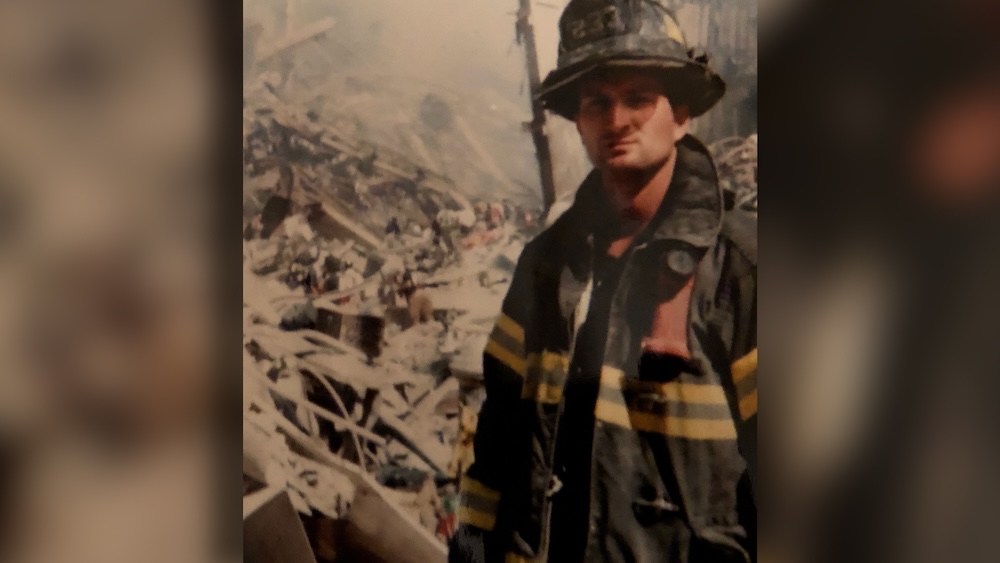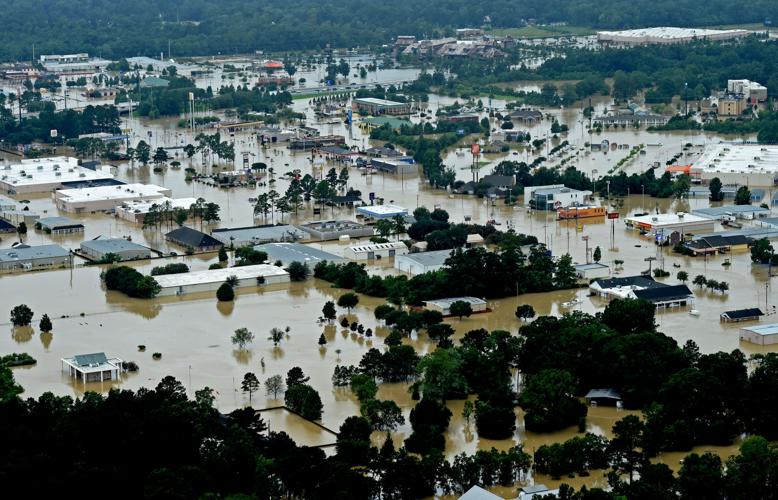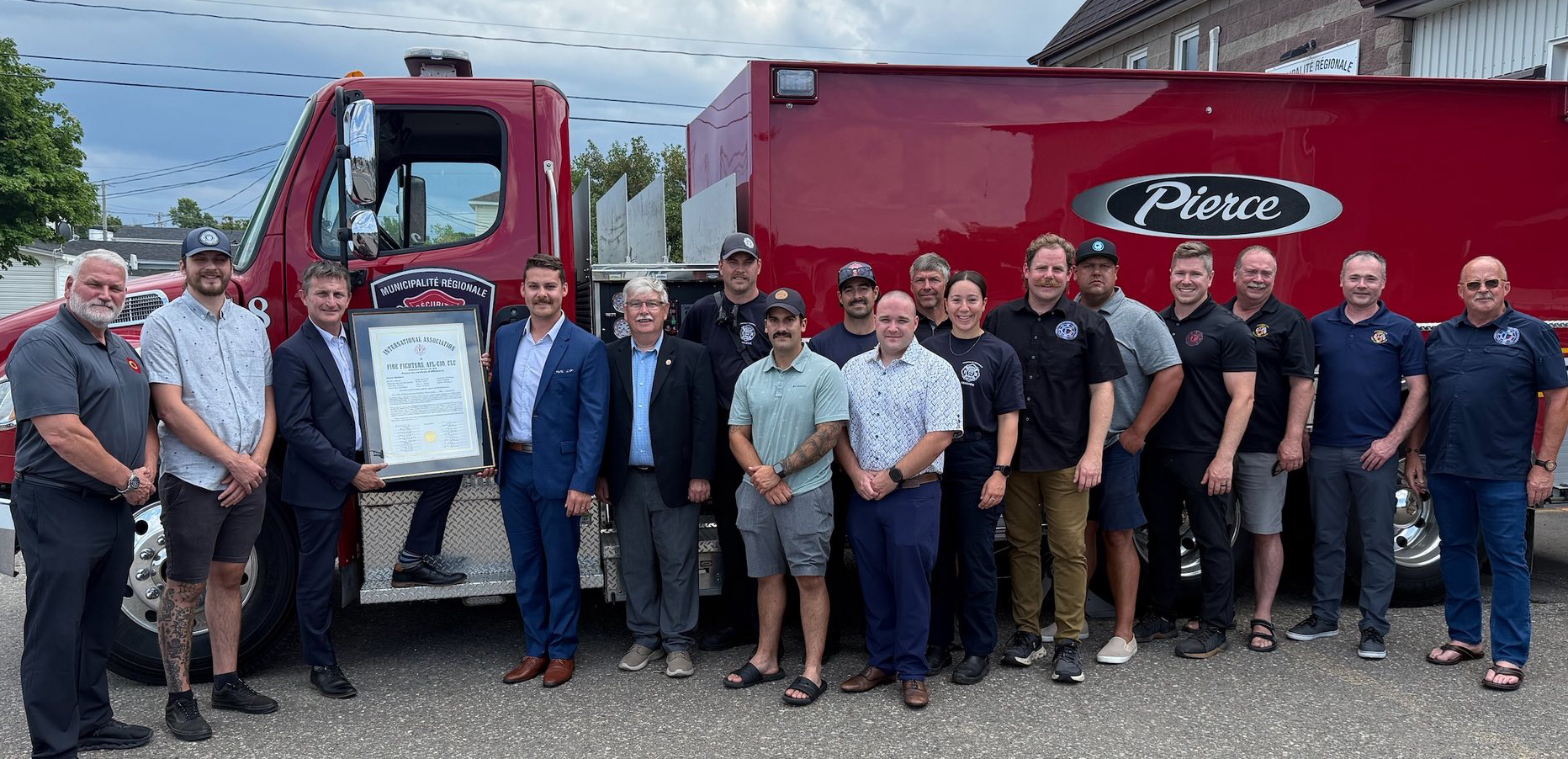When New York Uniformed Fire Officers Association (UFOA) Local 854’s Joe Sesack volunteered to donate a kidney, he thought it would be a simple act of service to a longtime friend. Instead, the decision led to a life-changing diagnosis.
During screening at NYU Langone Health, doctors found something unexpected: cancer.
“Lo and behold, I have a mass on my pancreas,” the retired FDNY lieutenant said. “I’ve been diagnosed with stage four pancreatic metastasized cancer, and that has also spread to my liver.”
Sesack retired in 2019 after nearly three decades of service with the FDNY. He served as a lieutenant with Ladder Company 133 in Queens and responded to the 1993 World Trade Center bombing. He also took part in recovery efforts at Ground Zero following the Sept. 11 attacks.
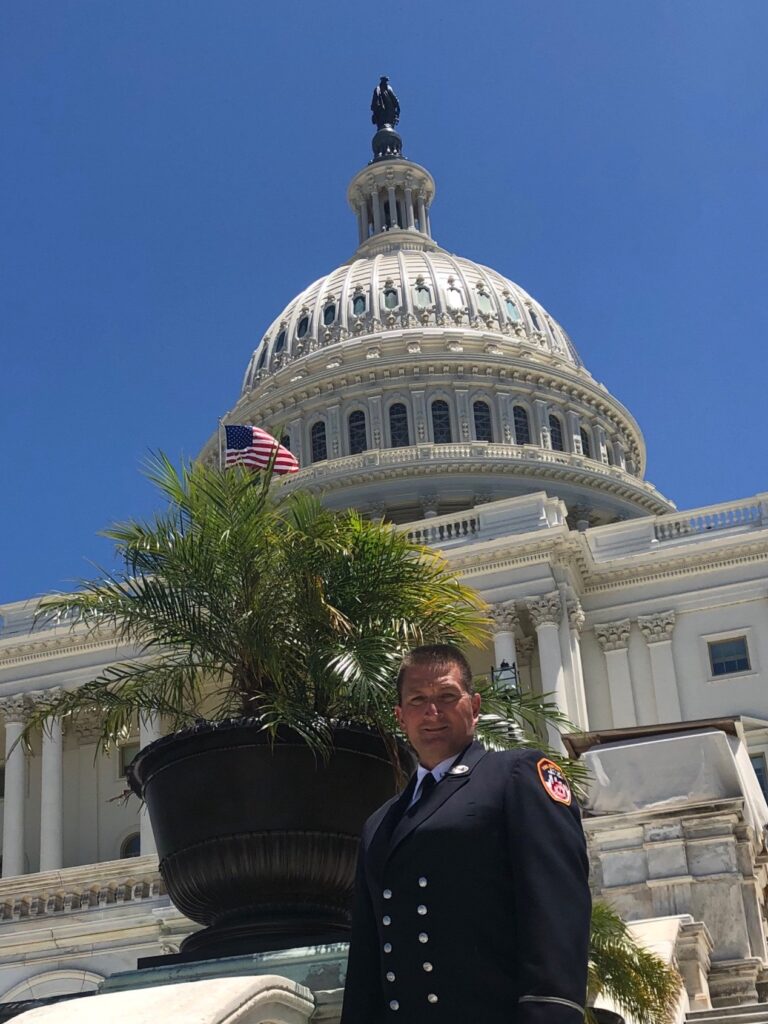
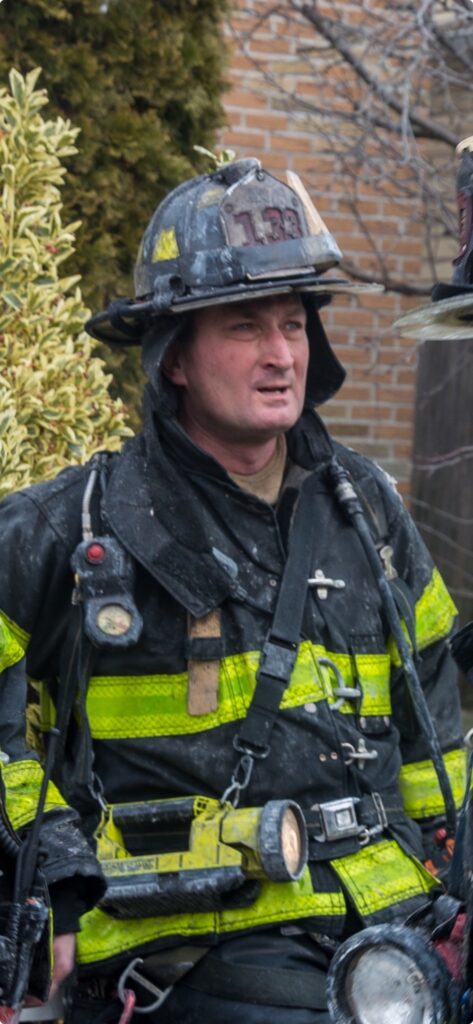
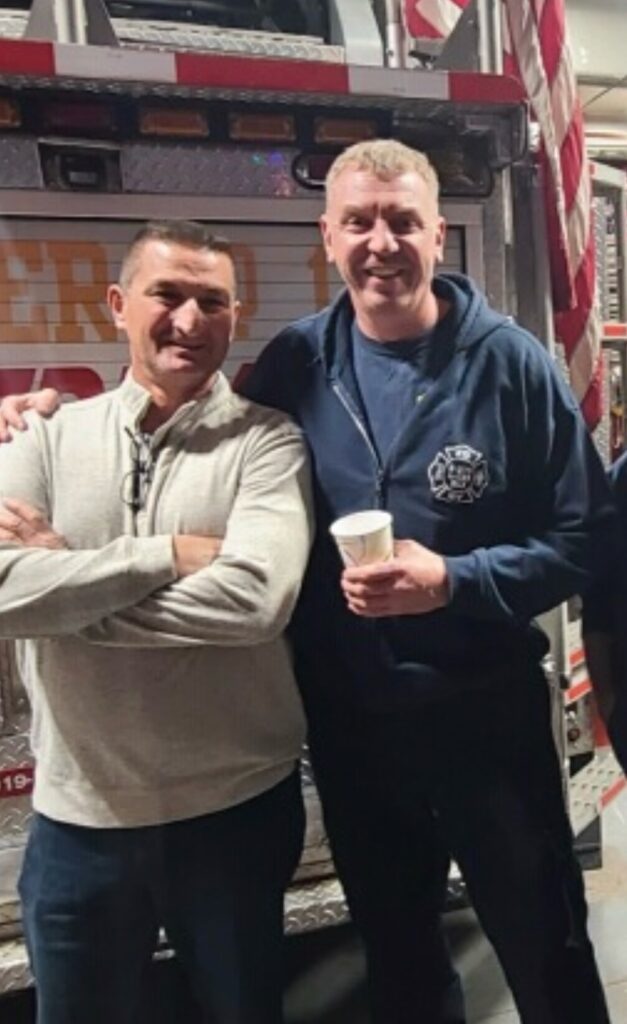
“There’s just a cloud of dust everywhere. Even though the politicians went on TV and told us that the air was safe to breathe, we all knew it wasn’t,” said Sesack. “This is a World Trade Center 9/11 cancer diagnosis for me. And it was absolutely 100% related to that.”
A recent news report shows that 48,579 first responders and others have been diagnosed with cancers linked to Sept. 11. It’s a 143% increase over the past five years, based on the latest figures from the World Trade Center Health Program. Many of those cases are in responders now in their late 50s and 60s.
“There’s a lot of sick people on this job from their exposure to 9/11,” said Sesack. “Everybody needs to realize you need to go get yourself checked.”
There’s a lot of sick people on this job from their exposure to 9/11. Everybody needs to realize you need to go get yourself checked.
retired ufoa Local 854 lt. joe sesack
His story also connected him to a fallen brother from Ladder 133, Uniformed Firefighters Association of Greater New York (UFA) Local 94’s William “Billy” Moon. In 2022, Moon died after a fall inside his firehouse while preparing for a training drill.
His wife, Kristina, founded the Billy Moon Foundation to honor his legacy by advocating for organ donation and supporting donor and recipient families.
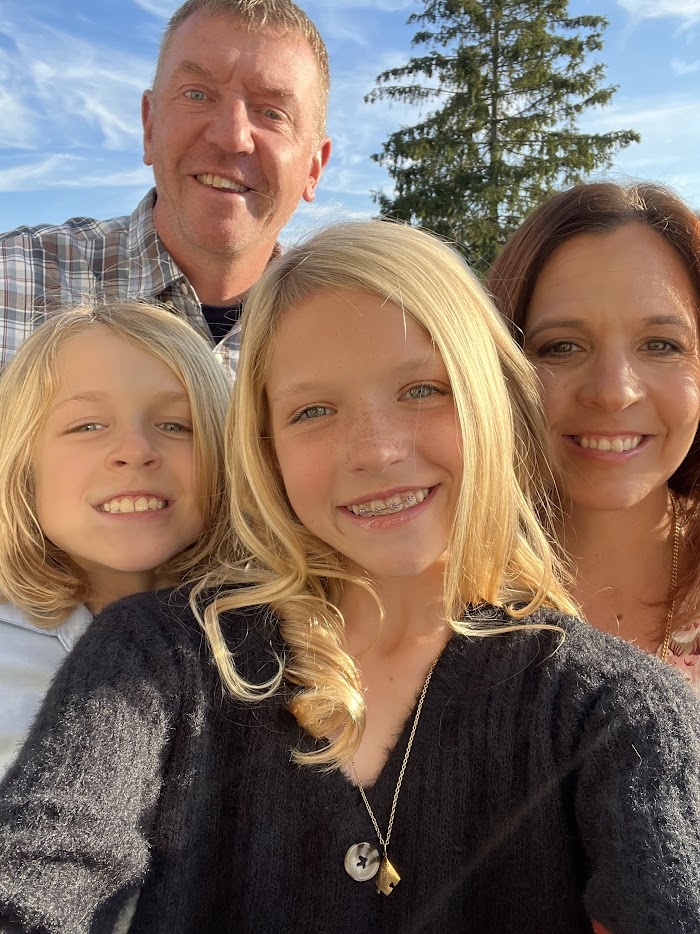
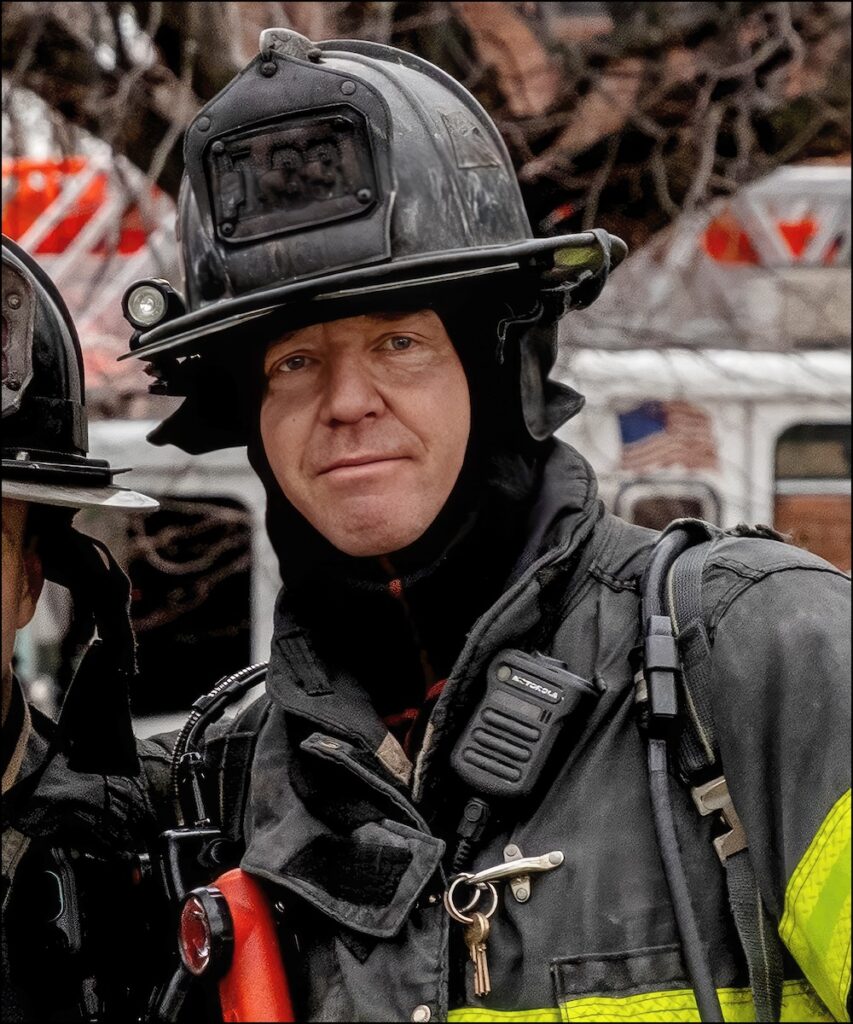
“Billy donated his organs and saved the lives of five others. It just warms my heart that I even came up in the conversation, especially when Joe was already doing something so selfless,” Kristina said of the early call with Joe. “It really speaks to the innate selflessness of the fire service and of being a donor. Here he is, enjoying retirement, yet still willing to go under the knife to donate an organ to a good friend.”
It really speaks to the innate selflessness of the fire service and of being a donor. Here he is, enjoying retirement, yet still willing to go under the knife to donate an organ to a good friend.
kristina moon, widow of billy moon and president of the billy moon foundation
“Even though this led to an unexpected diagnosis for Joe, he still said to me, ‘I want to share this and let people know.’ And now, he’s beginning a long journey ahead,” she said.
As Sesack now faces treatment, others are stepping up to help take his place.
“Without even hesitating, a friend and former colleague goes, ‘He can have one of mine’,” he said. “I told him to go home and think about it for 24 hours, and he went, ‘I just thought about it. I’m doing it.’”
More followed.
“So one failure turned into three people willing to donate kidneys. It’s a pretty wild story,” he said.
It was the kind of ripple effect Billy had spent years pushing for.
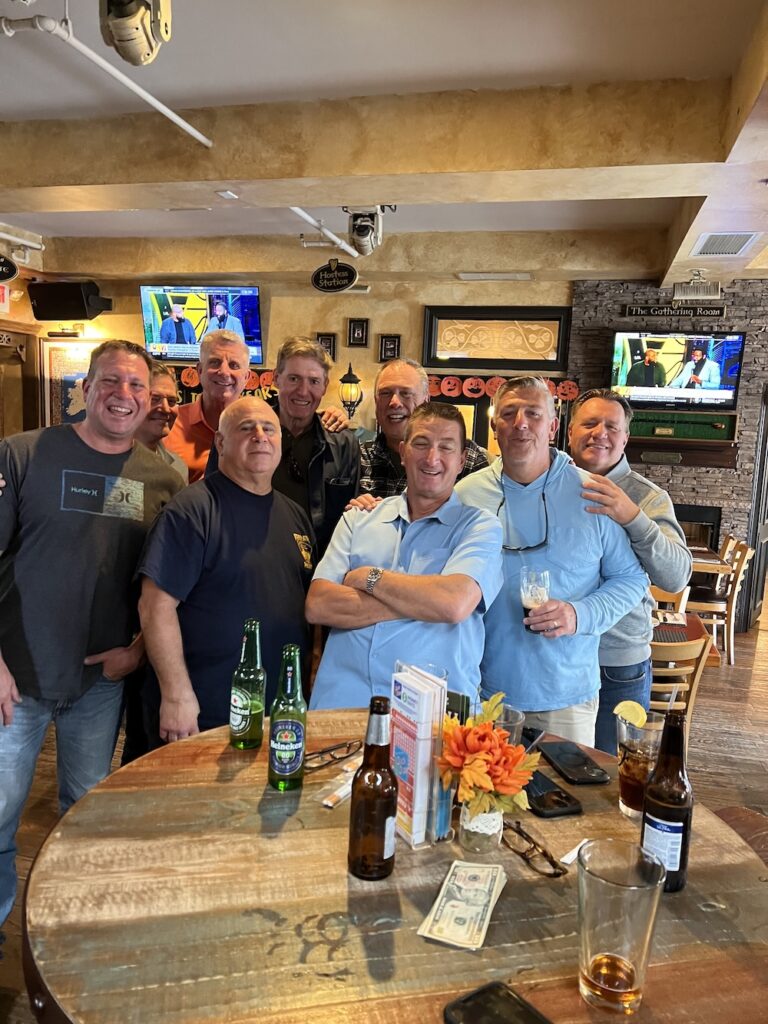
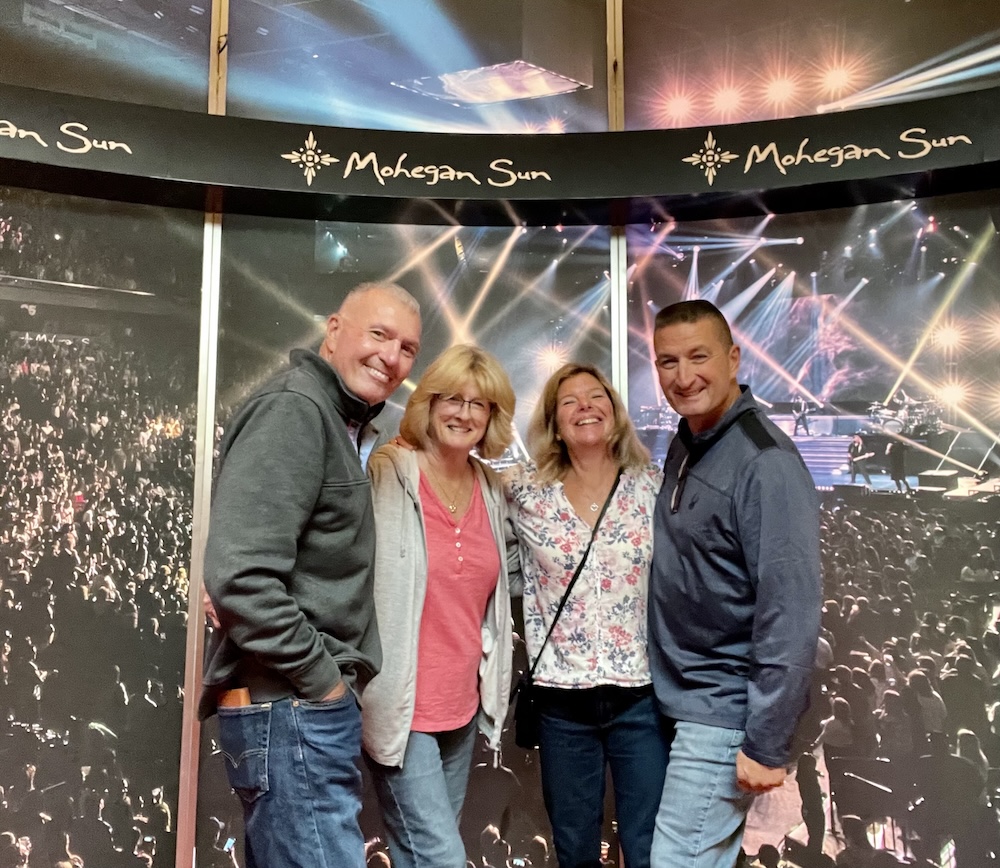
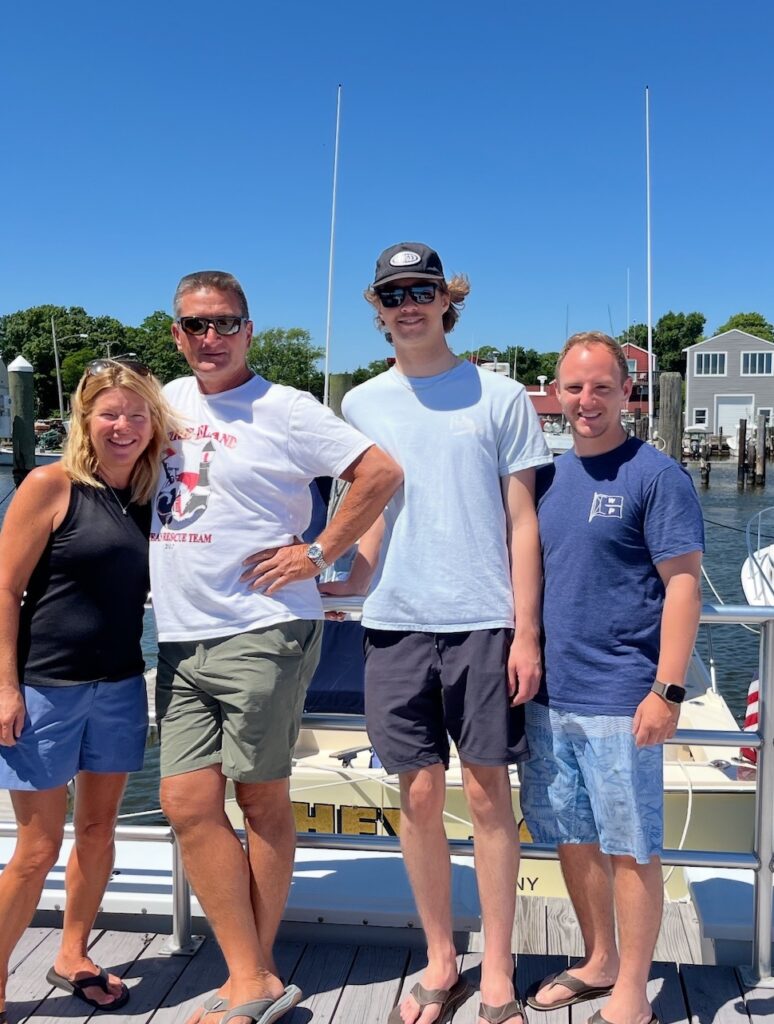
“He’d call you right out to your face at the kitchen table with a dozen guys standing around and say, ‘Let me see your license. Are you an organ donor?’ This went on for years,” said Sesack.
Billy’s heart, lungs, liver, and kidneys saved five lives including two retired FDNY fire fighters, one with a Sept. 11-related lung illness.
Kristina sees the foundation as a continuation of Billy’s passion.
“More and more people are stepping up to help others,” said Kristina. “Sometimes it’s someone they know, sometimes it’s not. When you’re dealing with a living donor, a big part of the process is figuring out how to share your story with a network,” she said. “But not everyone has a network. You might get tested for a friend and not be a match, but you can still give to someone else.”
As Sesack starts treatment, he’s focused on helping others by sharing his story – and Billy’s.
“Early on in my career, there was no paying attention to health,” he said. “We were too busy running through brick walls trying to be that tough guy. There’s never enough of that message to be shared.”
To learn more about the Billy Moon Foundation, visit the link here.
